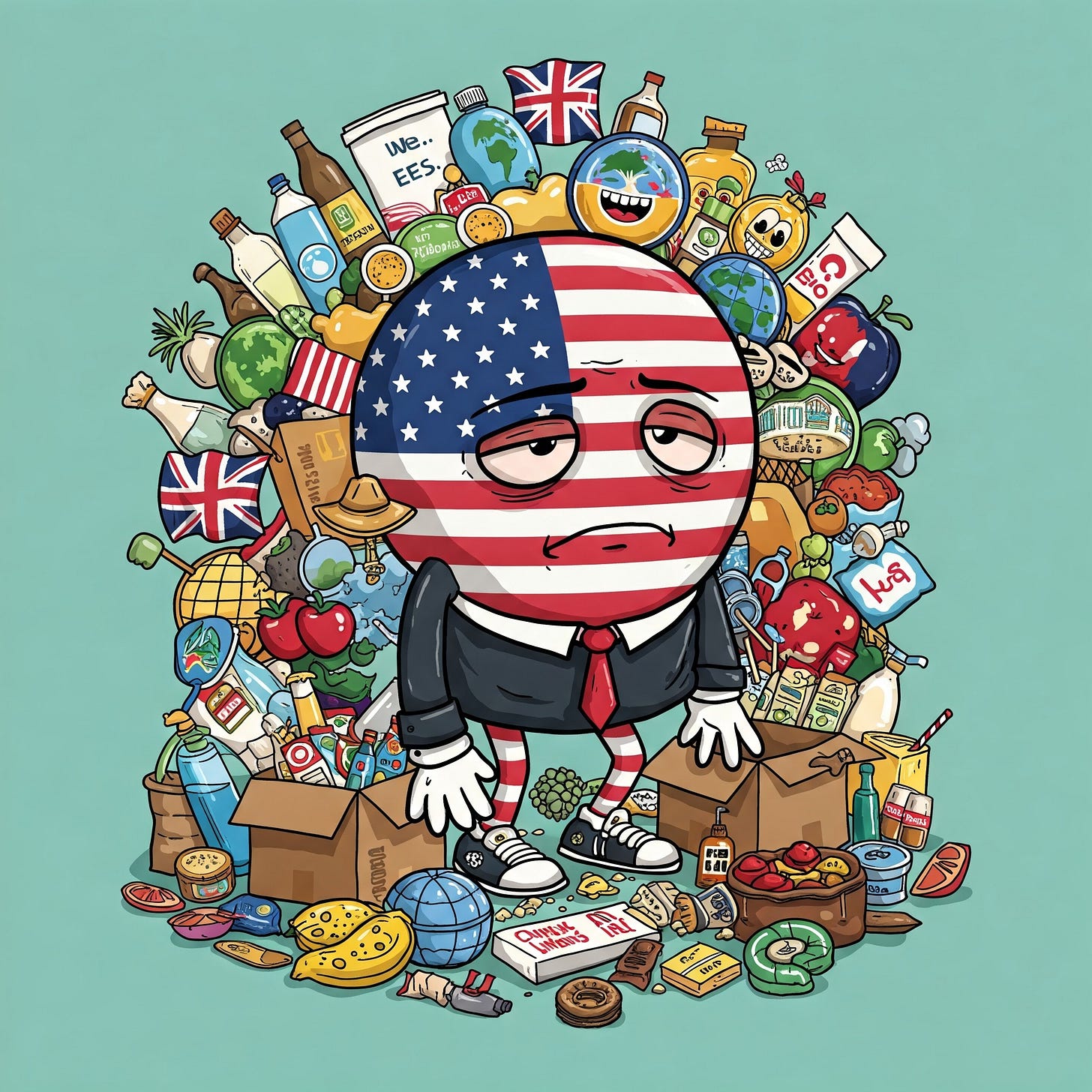Its Triffin's world, we're just living in it.
The deficit, the dollar and where China can buy American.
The trade policy announcements from last week appear to largely match the Stephen Miran essay “A User’s Guide to Restructuring the Global Trading System”. The essay focuses on the Triffin World being the primary threat to the US economy. The Triffin World is described as a global financial system where a nation's currency serves as the primary reserve asset, driven by global trade and savings. The reserve currency nation, like the US with the dollar, must run persistent current account deficits to supply this demand, leading to an overvalued currency
This harms domestic industries by making exports expensive and imports cheap. The inherent "Triffin Dilemma" is that these continuous deficits can lead to unsustainable debt, potentially undermining the reserve currency's stability and causing global financial instability.
effectively, the US buys everything so the US dollar is the most in demand driving up its value subsequently making it more expensive to buy “American” further widening the trade deficit and the cycle continues.
To combat the Triffin world involves devaluing the US Dollar and re-industrializing the United States, namely through Tariffs and the restructuring of the national debt. One of the most interesting thought exercises from the essay is if China invested in a US Factory as a by -product from larger trade negotiations.
Three MSAs within the United States which would be particularly advantageous for a substantial automotive manufacturing facility investment by a Chinese entity would be Memphis, TN; Savannah, GA; and Charleston, SC.
In a hypothetical trade environment where the policies from the user guide are operative, the rationale for these location recommendations warrants examination:
Memphis, TN: The MSA of Memphis presents notable logistical advantages, characterized by "exceptional intermodal connections" and its designation as a significant distribution hub within the United States. Furthermore, abundant & low-cost water in the region is a critical resource for the manufacturing processes. The burgeoning automotive sector in the region, evidenced by recent investments in electric vehicle production, suggests a developing skilled labor pool.
Savannah, GA: Savannah offers direct access to the Port of Savannah, a key facilitator of international trade. The MSA is also experiencing rapid expansion in the electric vehicle manufacturing sector, driven by substantial investments, which is attracting a growing network of Tier 1 suppliers. While utility costs are reported as moderate, the confluence of port access and a developing automotive ecosystem positions Savannah as a compelling location.
Charleston, SC: This MSA benefits from an "established automotive sector", supported by the presence of major manufacturers. The Port of Charleston's experience in handling automotive exports provides a logistical advantage for international distribution. Additionally, South Carolina offers a favorable fiscal environment for manufacturing investments through various tax incentives.
The US dollar's status as the main reserve currency requires US trade deficits, which can lead to an overvalued dollar and harm US industries. This creates a risk of unsustainable debt and global financial instability. To address this, the US may need to devalue its currency and reindustrialize. One possibility is for China to invest in a US factory, with Memphis, Savannah, and Charleston being potential locations due to logistical and labor advantages.




